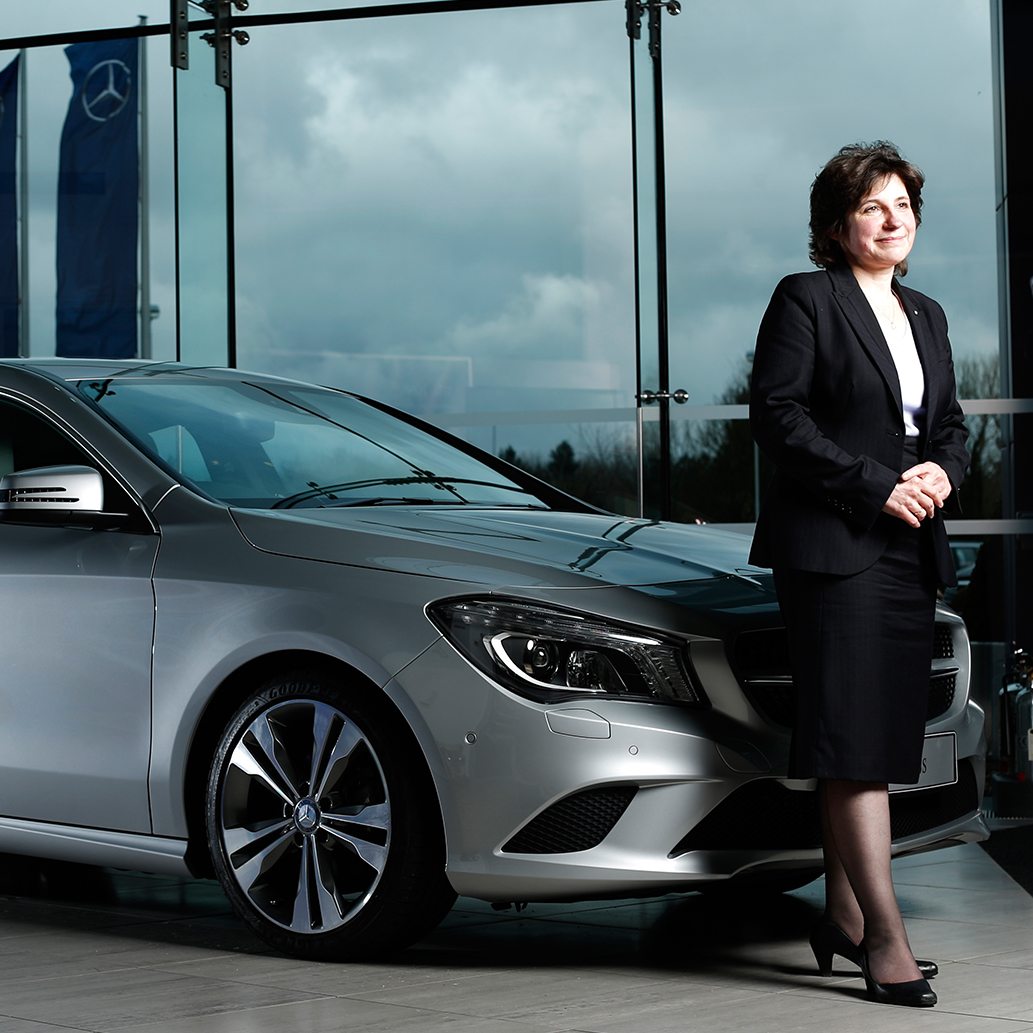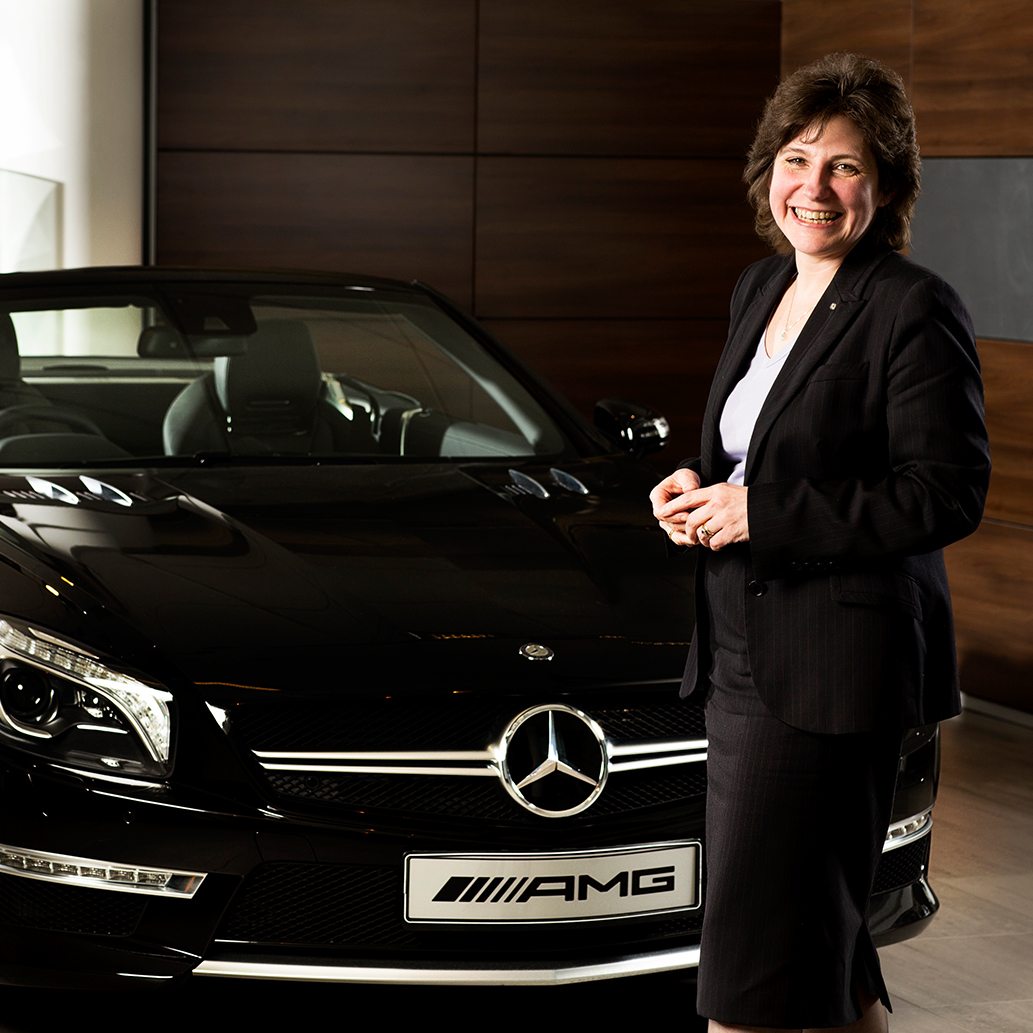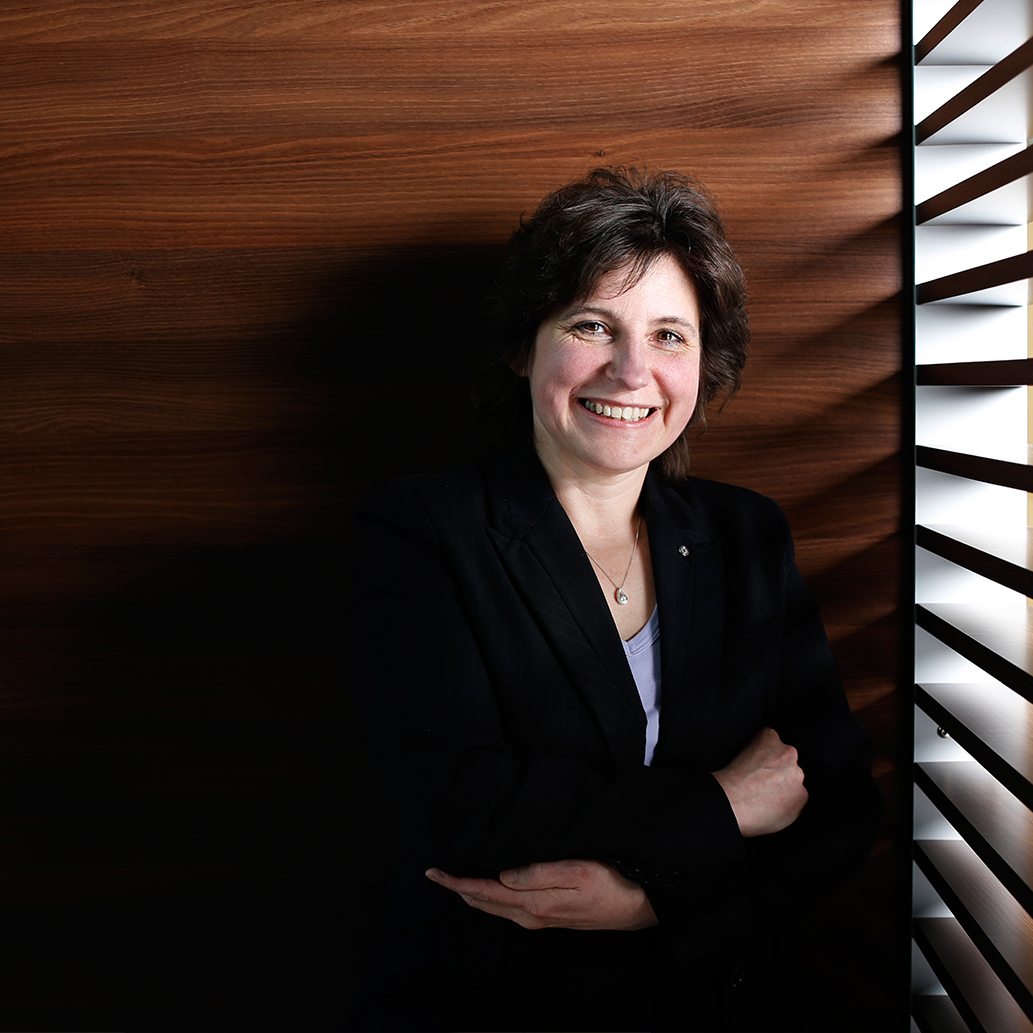Give us an idea of your early career and what it was about HR that caught your interest?
After graduation, I had a great start on the Unilever graduate programme, where I began as a commercial trainee in finance. Unusually, due to a combination of my previous work experience and an unexpected vacancy, after only eight weeks I found myself covering a line manager position. I was managing about 20 people, doing export documentation and, in terms of people management, I was completely thrown into the deep end. I was doing pretty much everything in the line management remit: recruitment, performance management and team building, as well as the day-to-day, which for a new graduate was, to say the least, challenging. I got totally immersed in the operation and the people management elements, which introduced more and more HR issues as I progressed, and I thought: “Hey I’m really enjoying this”! I was approached by a senior HR manager in the organisation who asked me if I’d ever thought about HR as a career. I had a serious discussion with the Commercial Director who, whilst at first was reluctant to see me leave the finance fold, encouraged me to give it a go and so I got my first HR manager role within my first year at Unilever.
I was really fortunate, because Unilever’s training is renowned and respected, and to get the opportunity to experience that vast business from a number of different perspectives, in different operating companies, was unquestionably very valuable to my development. My experience included working for export companies such as; Unilever International, Factory Personnel Manager for Liptons tea, and then with some of Unilever’s brightest minds in Unilever Research… tea bags to the human genome is quite a leap!
My next move was to DiverseyLever, which was a business-to-business sales operation, which was subsequently sold to Johnson Wax. So I had my first experience of a merger and acquisition between two giant companies and learned a great deal, working with the team handling all the people issues, keeping everyone focussed on the business and results, at a time of considerable change and potential fears about jobs and what the future held. As we went through that merger, constantly learning in a rapid and highly-charged arena, I was appointed HR Director. So I was learning first-hand how good HR is, and how integral it is to keeping the business focused on delivering its financial results, whatever disruption is going on within and around the organisation – a challenge heightened by the Board’s shared desire to significantly increase profitability.

This must have been an incredibly fast and intense learning period.
Yes, it was intense, your first Board opportunity always is, but a great learning opportunity too. For HR to work, you have to know how it impacts on the top and the bottom level, throughout the organisation. For sure, you have to have empathy and understanding, but this doesn’t mean, as HR Director, you can shy away from tough business decisions. You have to be aware of how your actions impact people and then choose what you are going to do about that. This also means that you have to take care of all of the people aspects, and you can’t leave one aspect unaddressed, otherwise you lose the power to connect all the levers that make an organisation really perform.

You left the organisational surety of Unilever and went for a job for a business where HR had never been on the agenda.
Yes I joined a business called RS Components, the UK arm of Electrocomponents, and HR was certainly in need of some attention. In every respect, it was a very different proposition than Unilever, as HR needed to be dismantled and rebuilt from scratch. But above all, and the real driver for me was, that the business had a very compelling challenge, a complete HR transformational programme, which kept me embroiled for three years. I’ve always been very fortunate in working with Managing Directors who really understand the difference HR can make. In this business, the MD knew that business-focussed HR was key to the business turnaround he wanted to achieve, and my first observations were, he had a clear vision of what he wanted to achieve, but was not sure how best to go about it. Mutually though, we shared the core belief that the vast majority of people want to come into work and do a good job, and that effective HR is about showing how they can make that difference.
So promoting a way of working that embeds self-responsibility, as well as a clear identity of their part in achieving results and objectives, was absolutely central to good performance. In response, you have to demonstrate understanding, respect and faith in people’s skills, endeavours and input. What was very useful for my understanding was gaining experience in all aspects of a business, to see what people are up against and really taking heed of feedback. For example, in this case, people who work with customers knew what things needed changing and improving in the organisation to improve the customer experience, and they showed an acute awareness of what was stopping them from optimising this. I made the connection that HR is very much a conduit and a lynch pin. Working with the lines, and listening to people’s ideas and reacting accordingly and effectively, to introduce measures was a core role, and importantly communicating what is being done and then saying: “Job well done”. So for me, in this business, it was concentrating on the common-sense HR issues and the basic building blocks, as well as looking at skills shortages and how to optimise the resources.

Then came the call about the opportunity to join Mercedes-Benz. How could you resist this?
People always light up when I say I work for Mercedes-Benz. RS components was great, the proverbial blank sheet of paper, but it was time to move on to the next challenge. So I got the call, and they were very clear that they wanted a very different approach to HR. One of the first things I did was take a look at the employee engagement scores; and the metrics demonstrated something of a paradox – attrition was very low, but engagement scores did not correlate with this.
Also, a consequence of the low attrition was a real lack of fresh new talent coming into the business, which is such an important part of the chemistry. So from an HR perspective, this was a very appealing proposition. As HR Director for the UK, my areas of responsibility at Mercedes-Benz UK, was the importer and head office, which also incorporates our unionised parts warehouse, Mercedes-Benz Retail Group and Mercedes-Benz Financial Services. So my role needed to work across a group of companies. But, when I first joined, these were all very separate organisations. So the first challenge was to get a grip on what the business objectives were and then set the people agenda right across the group, aligning HR, the resourcing and the skills needed to achieve those goals.
From what you say, HR wasn’t cutting it for the business, so presumably you had to deal with HR first.
When I first arrived, it was clear to me HR needed to change. Whilst everyone was working hard at what they had been asked to do, the team was just not getting traction. Our engagement scores were the lowest in the company by some considerable way. Given the significant change needed, it was a very difficult first 12 months, but you have to get on with it, stick to your guns and trust your intuition and experience. I think it takes great resilience when you’re bringing about that type of change on your own, it can be quite isolating, so you have to get people on board as quickly as possible and demonstrate some speedy improvements, so that the tougher, longer term stuff can come to fruition in the time that it will take. It’s a difficult process to put such a big number of people through change, especially if you genuinely care about people, but if the performance and the success of the wider business are reliant on change, it has to be done.
Does it surprise you that still, in many organisations, HR is seen as being quite separate to the business?
Yes and no, I think HR can easily get isolated. For example, when I came to Mercedes-Benz, 95 percent of the work HR was involved in was legal issues and policies. Of course, employment law goes with the territory, but the danger is that too much focus on such things does not make HR an effective business partner. It can lead to us talking in a language that our customers don’t understand and makes us appear obstructive. That can be very disabling and demoralising for both HR and line management. It also takes the time and focus away from things that can make real impact. When you then consider how HR often perceives itself, I think we can have a tendency to be internally focussed, too introspective and wrapped up in processes and theoretical models. Yes, they underpin what we do but we need to translate them into a business context that our managers understand and can make the connections to delivering results, personal and business. Finally, as with all business functions, you can end up being pulled in all directions, so you have to consider carefully how and where you spend your time and resources, and what makes real impact, with business partnering at the core. Only then can HR be a true business enabler.
How has this approach defined your input at Mercedes-Benz so far?
Our business partnering journey has been about putting quality HR in place that can really work with the business. We stepped up the focus on employee surveys, so that we could understand what the issues and opportunities are. We invested in our people by putting in a first class training and development platform and we improved the lines of internal communication, so that we could monitor progress and quite quickly, this really gave the whole thing momentum. These challenges also evolve with time. During this period (2011) our new CEO, Marcus Breitschwerdt, joined us and his focus has been around driving our sales results, and his very clear business vision, enabled by the fantastic set of products we have, galvanised our drive and focus, to really get the most out of the whole and the sum of the parts.
As we progressed, the historic disparity between the different parts of the business became even clearer. Of course, identity is important, but if different parts of the business are not communicating and working together properly, the whole will not operate effectively. It is surprising that even today, with all the modes of communication technology, that this is such a common problem. So it was about analysing and reviewing operations and taking the very best from both, enabling them to feel they are in partnership, which in itself took the best part of a year to get right. Then the journey really began!
We recently moved our Financial Services business into the same building as the importer. We made sure we actively focussed on this move, being aware of all of the impacts on our people. It was important that the legacy of both separate companies was respected and remained visible and valued. At the same time, we organically grew the identities of the new companies as they came together, based on the values of our parent organisation and involving the leadership community was also an important enabler. Addressing all of these comprehensively, to ensure that we had one approach and one set of principles that drove all our actions, has meant we have massively driven the businesses forward together. Focus on customers throughout this very internal move was essential and this is probably best illustrated by our approach to introducing a whole new grading structure across the organisations. Bringing in a new grading structure covering 1,400 roles, in three different parts of the companies, was a challenge, as HR professionals will appreciate. We put in a lot of groundwork, thinking through the consequences of every action and identifying key issues.
The implementation also had to embrace the whole picture – how actions and messages interlink, and to make those connections, you have to be able to understand how the business operates day-in, day-out, where there is a complementary activity and where there can be a contradiction. After a lot of work, the end result is everyone now can see how they fit, how they can move across the organisation and develop their careers – either at the same level or with promotion – to make the very best of people and optimise their career potentials. It’s a journey for sure, but we now have a clear picture of our destination and onward journey, and we can really build on how we train, develop and get the right people in the right places to meet those objectives. Another great positive is, since we’ve brought the strands of the business together, increasingly people are getting the opportunity to move around the business to try different roles, with the objective of developing people’s width and depth of experience, and the new grading structure facilitates this.
The brand is highly-respected and much-admired, but there is no room for complacency. How does what you are doing internally relate to the actual business of selling vehicles?
We have a new generation of products which are attracting a new generation of customers and we need to ensure that our employees reflect this across our workforce. In sales, we are working in our retail group and looking at different approaches to attracting people from different industries into our Sales Academy. It’s this aligning the brand with the employer brand and whilst we have some way to go, we’re really pleased with progress. In my experience, with any strong brand, complacency is a clear danger, so you have to ensure that you keep continually improving all that you do. From a people perspective, this means we have to find different ways to keep the learning and development fluid, and so we’re fully committed to providing a range of development solutions that are relevant to both the business and our people.
What’s next in the HR journey and as we continue in this protracted economic slump, what are the ongoing challenges of the business?
I’ve been here for about four years, and a lot of that time has been about change and development in HR, to really deliver right across the business. A real confidence booster is that the work done so far is proving that the department is a real enabler for the business objectives and, as part of the Board, HR has the kudos and confidence to play a major role in determining the next stage of the journey. Yes, we’re fully aligned partners of the business, and driving a key part of the imperative. For the business, it’s a rolling agenda of very ambitious growth targets, against a tough economy and an increasingly competitive arena. But confidence comes from the alignment of incredible products, true engagement and pride in the brand and excellent self-belief right across the business.
There are very clear plans in place now and clear vision of what the business has to deliver, so HR has to do that too. I fundamentally believe that no one person has all the answers, and it’s the team, making the most of everyone’s contribution, that is key. The next part of the journey is to make the business, and HR in particular, more agile, and be extra critical about where we channel our time and resources. We’re also much less siloed, and are actively benchmarking what’s going on outside the business in other organisations, keeping abreast of new thinking and developments, and integrating new measures and processes, where appropriate.
Throughout your career, what has been your key learning in the managing people?
No matter what business or sector you work in, people are the same, but you have to be aware that the context is different, in terms of what delivers results. So it’s essential to HR that you adapt your approach accordingly, and use the tools and capabilities available to you, to meet needs. One thing is sure, even now, everyone has an opinion about HR. Some people think it’s just a day-to-day sector, that paradox of tea and sympathy and hire and fire, and a part of that is, people only see the piece of HR that they have dealings with. There is little understanding of the many and contrasting aspects of HR, and the impact the function can have. For me, HR is a true profession, with a clear set of competences and skills that take time and experience to develop. Done well it is a great business enabler, done poorly the results can be appalling.
Does the job still get you out of bed in the morning?
Whatever your job and regardless of the level on which you operate, the very worst thing that could happen is to have a job that’s without challenge. If you’re not doing a job that constantly pushes you, then that’s a recipe for complacency and a downward spiral in performance. In turn, you’ve got to challenge HR to keep getting better, constantly ask and expect more from it, to keep it relevant and always adding business value. HR can do many great things for people and the business, but you have to fully embrace it, constantly champion it and strive to get better and better. And above all else, don’t be shy of telling people that they are succeeding with HR’s input. It’s important to celebrate success, and even better when you win some awards, especially when they are for the change and improvement you have been a part of implementing. That’s a great testament to the people involved, because it demonstrates that all the hard work has also been recognised and acknowledged by those external to the business. Humility is also essential, acknowledging that we all make mistakes but learning from them is vital too. I’m a great believer in evolution, bring on change and never accept the status quo but always view it through the eyes of the business, that’s what we are all about, at the end of the day! I look for both traits and qualities in others – you know, somebody might not have that skill or the experience, but they have the attitude and enthusiasm, that’s 90 percent in my opinion. And fundamentally, no matter who you are or I’m a great what you do never, ever stop learning.












